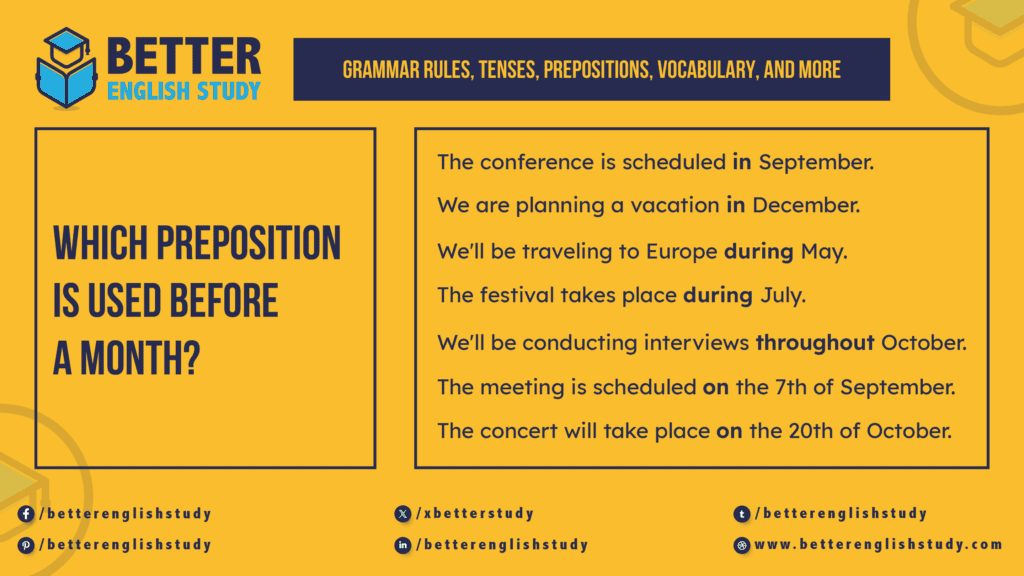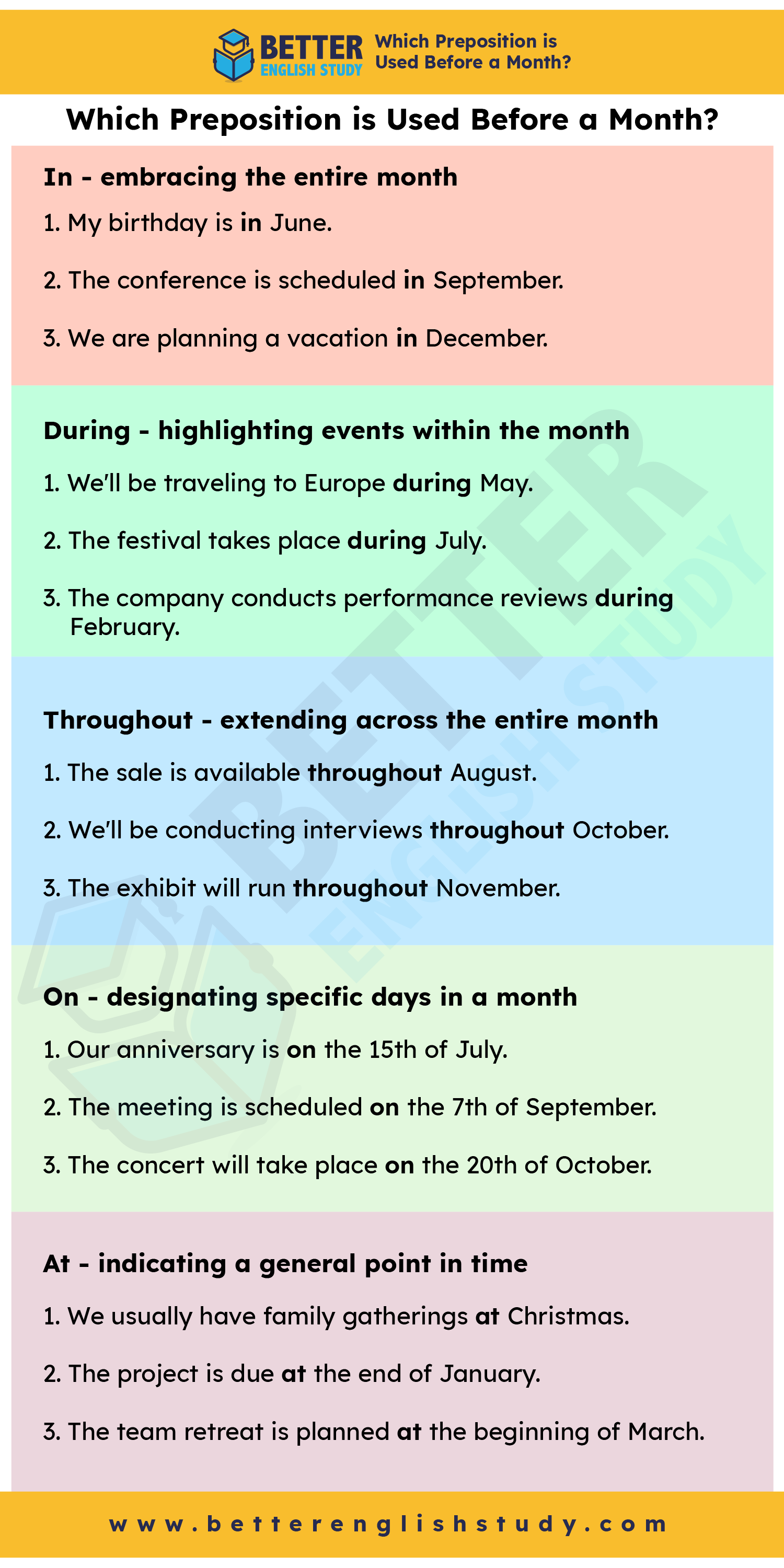
When it comes to referring to months, choosing the correct preposition is essential for accurate and meaningful communication.
“In” is commonly used to encompass the entirety of a month, while “on” is employed for specific days. “During” emphasizes events within the month, “throughout” conveys continuity, and “at” indicates a general point in time.
In this article, we will explore the diverse ways in which prepositions are used before months, shedding light on the intricacies of these language choices.
In – embracing the entire month
The preposition “in” is commonly used before months to signify a period that spans the entirety of that month.
Examples:
- My birthday is in June.
- The conference is scheduled in September.
- We are planning a vacation in December.
During – highlighting events within the month
The preposition “during” is employed to emphasize specific events or activities occurring within the confines of a particular month.
Examples:
- We’ll be traveling to Europe during May.
- The festival takes place during July.
- The company conducts performance reviews during February.
Throughout – extending across the entire month
The preposition “throughout” conveys continuity and is used to describe events or conditions that persist over the entire duration of a month.
Examples:
- The sale is available throughout August.
- We’ll be conducting interviews throughout October.
- The exhibit will run throughout November.

On – designating specific days in a month
The preposition “on” is employed when referring to specific days within a month.
Examples:
- Our anniversary is on the 15th of July.
- The meeting is scheduled on the 7th of September.
- The concert will take place on the 20th of October.
At – indicating a general point in time
The preposition “at” is used to convey a general point in time within a month.
Examples:
- We usually have family gatherings at Christmas.
- The project is due at the end of January.
- The team retreat is planned at the beginning of March.
In conclusion, the choice of preposition before a month depends on the context and the specific information being conveyed.
Whether it’s the inclusive “in,” the specific “on” for particular days, the continuous “throughout,” or the general point in time with “at,” selecting the appropriate preposition ensures accurate and effective communication.
Understanding the versatility of prepositions before months empowers individuals to articulate temporal relationships with precision and clarity in various scenarios.
